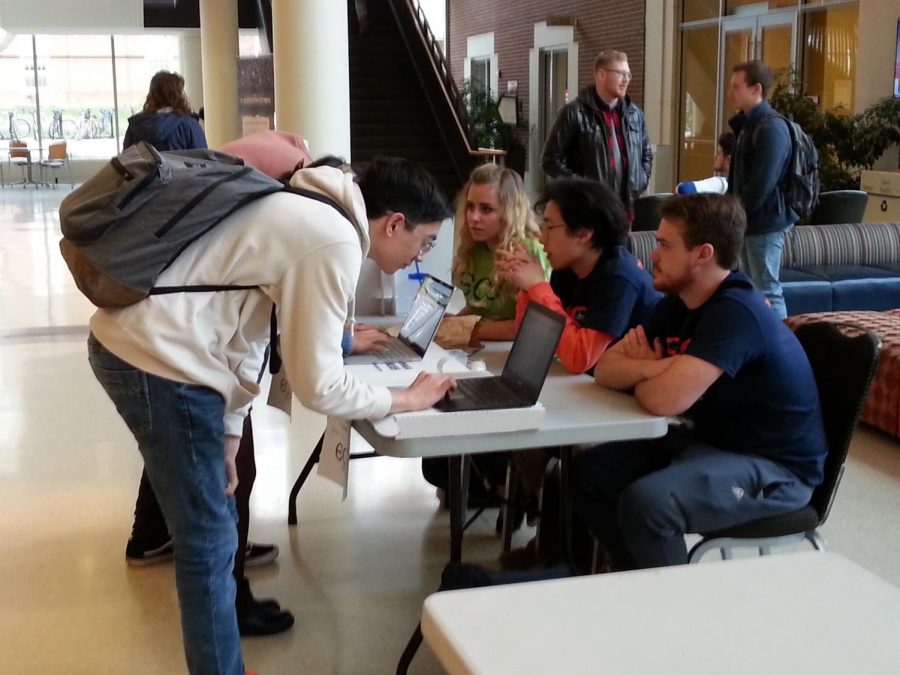Hopkins leads this year’s Eco-Olympics
Photo Courtesy of Madeline Barone
Madeline Barone (left), Franklin Wang (center), and Lukas Aleksonis (right) encouraging students to sign up for eco-olympics at the tabling event on April 2nd at the SDRP.
April 17, 2019
Hopkins Hall leads the pack in the 2018-19 Eco-Olympics taking place at the University, with Taft-Van Doren, Allen, Wassaja, Lincoln Avenue and Florida Avenue halls trailing close behind.
Eco-Olympics is an energy conservation competition between University residence halls in which students compete for a trophy and $500 incentives.
Participating halls are judged based on their building’s energy conservation and activity at Eco-Olympics events, such as Boneyard Creek clean-up, flower planting, eco-trivia and craft nights.
“Through the competition, students have saved over 70,000 kilowatt hours of energy, with over 25% energy savings in one building,” said Madeline Barone, co-director of the Eco-Olympics, in an email.
Barone said the $500 reward goes a long way for residence halls looking for sustainable upgrades.
Get The Daily Illini in your inbox!
“Last year, the Lincoln Avenue Residence team bought solar-powered phone chargers for their hall — available for checkout at the front desk,” Barone said. “The year before that, Florida Avenue Residence purchased water bottle filling stations.”
The competition is a part of a nationwide competition platform, Campus Conservation Nationals, which aims to create behavioral change by promoting energy conservation competitions at U.S. universities.
Barone hopes the Eco-Olympics’ motto “Think Globally-Act Locally” helps to encourage long-term practices of conservation.
“Over a three-week period, students who participate continually make energy-conscious choices, so much so, that what was choice becomes a lifelong habit,” Barone said. “The goal is to create positive habitual change.”
Barone said while environmental damage may seem like a huge and inevitable problem, small changes can easily add up.
“Although washing your clothes in cold water and taking the stairs instead of the elevator may not seem like much, if the 575 students that have registered for the competition over the past three years retain and implement these habits for the rest of their lives, we have made a very significant impact,” Barone said.







